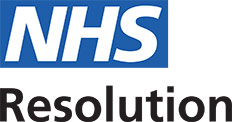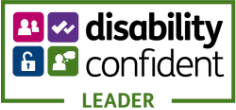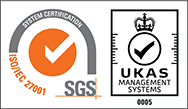Having an open culture where individuals feel confident to speak up when things go wrong and to raise concerns is one of the key elements of ensuring a safe and effective workforce and the provision of safe patient care. We believe that organisations should foster a just and learning culture which balances fairness, justice and learning when things have not gone as planned.
For more information on this please see NHS Resolution’s ‘Being fair’ publication.
You can find out more about what we do here.
At NHS Resolution, we may receive concerns as part of our operational activities. Our experience shows that, where possible, it is best for issues to be addressed locally where appropriate action can take place quickly and effectively. In such situations, where we consider that we cannot effectively address your concerns, we will signpost you to information about where to seek independent advice and support as follows:
The National Guardian’s office
The office can assist you by identifying your local Freedom to Speak Up Guardian and has a range of resources to support and enable speaking up.
If you are a registered professional, there are a number of sources of support for you to raise concerns which can be can be found on the websites below:
- British Medical Association (BMA) – for doctors and medical students
- General Medical Council (GMC) – for doctors on raising and acting on concerns including revised Confidentiality guidance
- General Dental Council (GDC) – for dentists on raising concerns
- Nursing and Midwifery Council (NMC) – guidance and toolkits for nurses and midwives
- Health and Care Professions Council (HCPC) – for health care professionals
- Care Quality Commission (CQC) – for health and care staff on escalating a concern with the CQC
- The Royal College of Surgeons (RCS) – advice to clinicians on what to do if they consider patients are receiving poor care.
NHS Employers has comprehensive information about how to raise concerns, including the latest information, guidance, tools and resources designed to support organisations to enhance local arrangements.
Additional guidance for staff outside England
For NHS staff in Scotland, Wales or Northern Ireland, you may find it helpful to refer the following websites:
Wales
Health Inspectorate Wales, Department for Health and Social Services, and the Care Council for Wales.
Scotland
Care Inspectorate, Health Improvement Scotland and Scotland Social Services Council.
Northern Ireland
Regulation and Quality Improvement Authority Northern Ireland, Department of Health, Social Services and Public Safety and Northern Ireland Social Care Council.
Whistleblowing
There is a difference between speaking up and whistleblowing. The law sets out several criteria that must be met for raising concerns to qualify as whistleblowing. If all of the conditions set out in the law are met, the individual who is blowing the whistle has legal protections to stop them suffering any disadvantage from their employer because of what they have done. Whistleblowing law provides protection for individuals (“whistleblowers”) who raise a legitimate concern about specified matters – a protected disclosure – which means that you shouldn’t be treated unfairly or lose your job because you ‘blow the whistle’.
Examples of concerns which may be considered as protected disclosures include:
- criminal offences, e.g. fraud;
- If someone’s health and safety is in danger;
- risk or actual damage to the environment;
- a miscarriage of justice;
- believing the organisation is breaking the law;
- believing someone is covering up wrongdoing.
There are however very specific criteria that need to be met for an individual to be covered by whistleblowing law when they raise and report a concern (to be able to claim the protection that accompanies it). There is a defined list of ‘prescribed persons or bodies’ who you can make a protected disclosure to. The role of a prescribed person is to provide individuals with a mechanism to make their public interest disclosure to an independent body where the individual does not feel able to disclose directly to their employer and the body might be in a position to take some form of further action on the disclosure. These are listed here.
NHS Resolution is not a prescribed body.
To help you consider whether you might meet these criteria, please seek independent advice from Protect (formerly known as Public Concern at Work) or a legal representative.
This is a charity that aims to protect society by supporting workplace whistleblowing. It advises individuals with whistleblowing dilemmas at work, supports organisations with their whistleblowing arrangements and informs public policy, seeking legislative change.
Page last updated on:






